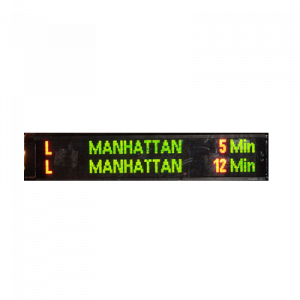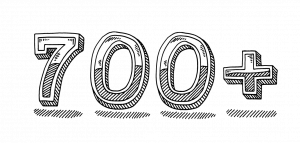It used to be that when you applied to an MBA program, you sent in a fat manila envelope with your resume, references, essays and other odds and ends. But today, in the age of digital, the big manila envelope is increasingly being seen as old-fashioned.
Indeed, business schools are now looking for cutting-edge content, including videos, Instagram posts and tweets, as part of the application process.
Beyond being simply more hoops to jump through, these new application components, business school representatives say, are a way to let an applicant’s personality shine through. We asked four schools what they’re looking for.
Showing off your personality with a video essay
Part of the current admissions process for an MBA at Northwestern University’s Kellogg School of Management is a set of three video essays. These are designed to allow applicants to show more of their personality than they could with a regular written essay.
Each of the 60-second videos are set up as icebreakers designed to show an applicant’s personality, as well as answering why Kellogg is the right school for them. Applicants are able to practice in advance, but when it comes to getting the actual question within the application software, they will only have once chance to record their response.
While this might sound like a kind of one-sided interview, Kellogg’s director of admissions, Melissa Rapp, says it’s simply in-line with what applicants can expect to find at the next stage of their careers.
“MBA students are often being interviewed for jobs by video before they ever set foot on a prospective employer’s campus. This trend has accelerated over the past year. Also, video conference calls have become a standard global communications outlet.”
Rapp says that since its inception three years ago, the video essay component “has resulted in an incredibly strong and diverse set of applicants”. As a result, Kellogg expanded this component to include a third video essay for the 2016-2017 admissions cycle.
Rapp says that while all applicants must complete the video essay as part of their application, all applicants accepted on to Kellogg’s MBA are further interviewed either in person or via Skype.
Similarly, the McCombs School of Business at the University of Texas offers the option for one of their two required written essays to be answered with video.
Stephen Sweeney, the school’s director of full-time MBA admissions says the essay which can be answered in video format is a personal introduction: “Introduce yourself, highlighting what drives you in your personal and professional life. So they can write an essay of 250 words or they can share a video introduction, that’s a minute”.
The difference between this video approach and the one from Kellogg is that McCombs applicants are able to record the video however they wish.
Sweeney says this means the videos they receive can vary greatly in quality. “They vary pretty drastically from someone sitting in front of their computer on their webcam in a minute, all the way to ‘day in the life’ scenarios of an applicant,” he says.
An example McCombs MBA video essay.
But in terms of an MBA application, the benefits of the video format are many: the opportunity for international students to show off their English skills, display necessary business skills like presentation and comfort in front of a camera, as well as creativity and a chance to express what an applicant wishes to get out of the program.
The video option was designed to give applicants a creative option, but when it comes time to submitting multiple MBA applications, writing one more short essay might just be easier. Sweeney says, “less than a quarter of our applicants typically submit a video, and so the majority of our applicants are just following the traditional written essay”.
LinkedIn, Instagram and Pinterest can be valuable MBA application tools
Last year McCombs offered the possibility for applicants to save time collecting up letters of recommendation by allowing them to submit recommendations on their LinkedIn pages. Sweeney says this did not prove to be so popular, since students already had to collect references for their applications to other schools. The time saved would be minimal to none.
However, the school does ask applicants to submit links to their LinkedIn profiles – a social media tool that they will need when applying for jobs nearer the end of the program – as well as other social media that allow them to show a more personal side of themselves. About 10 percent of students submit a Pinterest board, curating a set of images that explain why McCombs, based in Austin, is the right choice for them. Texan barbecue features heavily.
Outside the application process, McCombs runs various social media campaigns that encourage prospective students to engage with the school, such as its #whymccombs hashtag on Instagram.
It’s all about personality
The Tippie College of Business at the University of Iowa only requires one admissions essay for its full-time MBA, and it doesn’t even need to be in written form.
Paul Pinckley, director of admissions and financial aid in the full-time MBA program, says the premise is simple: “tell us about yourself with whatever means you want”.
Applicants have successfully submitted PowerPoint and SlideShare presentations, as well as short videos.
“In the grand scheme of things, we’ve learned more about them through this process,” says Pinckley.
But the pressure to be remembered shouldn’t put off introverts, or applicants who are simply happier sticking to written essays.
Pinckley advises applicants to do what’s comfortable, but don’t be held back by what you think a business school might have traditionally expected.
Tweet your MBA application
Among all these possible options, it might seem that a written essay just might take up less of your time. And the admissions team at Tippie College of Business has previously experimented with an option that, at first glance, appeared to be even faster: an essay in tweet form.
This began as a tweet competition for MBA scholarship applicants, with the idea that applicants would use the tweet to link to further content. However, the school copped some flak after the eventual winner was found to have previously tweeted something offensive that other Twitter users later dug up – a reminder to keep your online presence squeaky clean.
With the admissions team having removed the Twitter component from the MBA applications process, the freeform essay leaves a lot of room for creativity, but also the opportunity to ease some pressure.
Pinckley says the idea is to, “take this one, stress less, be creative, and just have some fun with this”.
Beyond social media and technology
It seems that rather than being attracted to the bright lights of new technology, business school admissions teams are focusing on drawing out personality.
Duke University’s Fuqua School of Business has taken this idea of personality curation and developed the 25 Random Things essay, where applicants list 25 things they’d like the admissions team to know about them.
Allison Jamison, director of recruitment and marketing for the Duke MBA says the challenge, introduced about five years ago, allows her team to see whether the applicant will be a good fit for the school.
“What is great about the 25 Random Things essay is that there is no ‘expected’ answer,” says Jamison. “Oftentimes in more traditional essays we see applicants trying to write about what they think we want to hear.”
Fuqua additionally offers an open admissions interview on campus to anyone who is interested, along with interviews by invitation to selected applicants.
The interviews are conducted by second-year MBA students on campus, or alumni off-campus. So showing plenty of personality in the 25 Random Things essay is still the best way to attract the admissions team’s attention.
See examples of successful applicants' 25 Random Things.
Paul Pinckley at Iowa says he would like to see more face-to-face opportunities for MBA applicants.
“Last year we did a pitch competition, where students actually came in and they did a personal pitch which allowed us to get to know them a little better,” says Pinckley. “It was more for scholarship, rather than admissions, but some of them had not been admitted yet. I’d love to be able to do more of that – an in-person presentation for their essay. It was far more entertaining.”
While social media and new technology might offer new ways to connect, it seems that when it comes to impressing MBA admissions teams, being able to you’re your personality is what will really make the difference between an acceptance or rejection letter.
Image: New iMac by Charlie Ma CC BY 2.0 (cropped)










